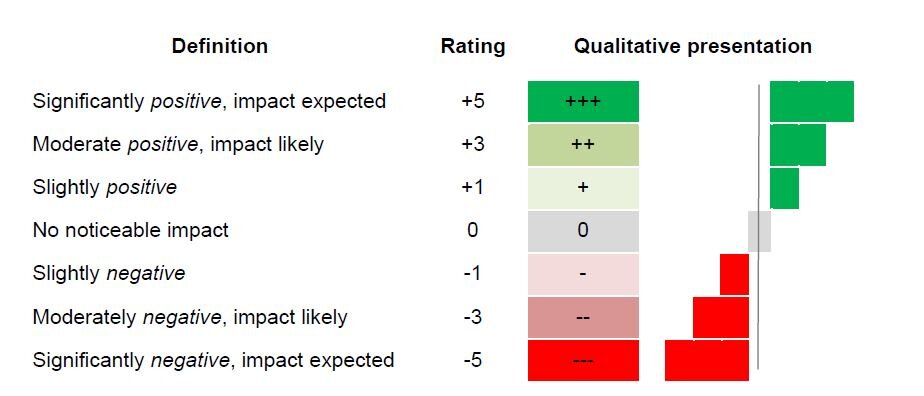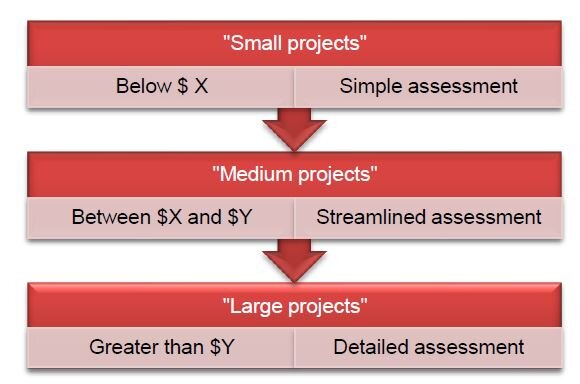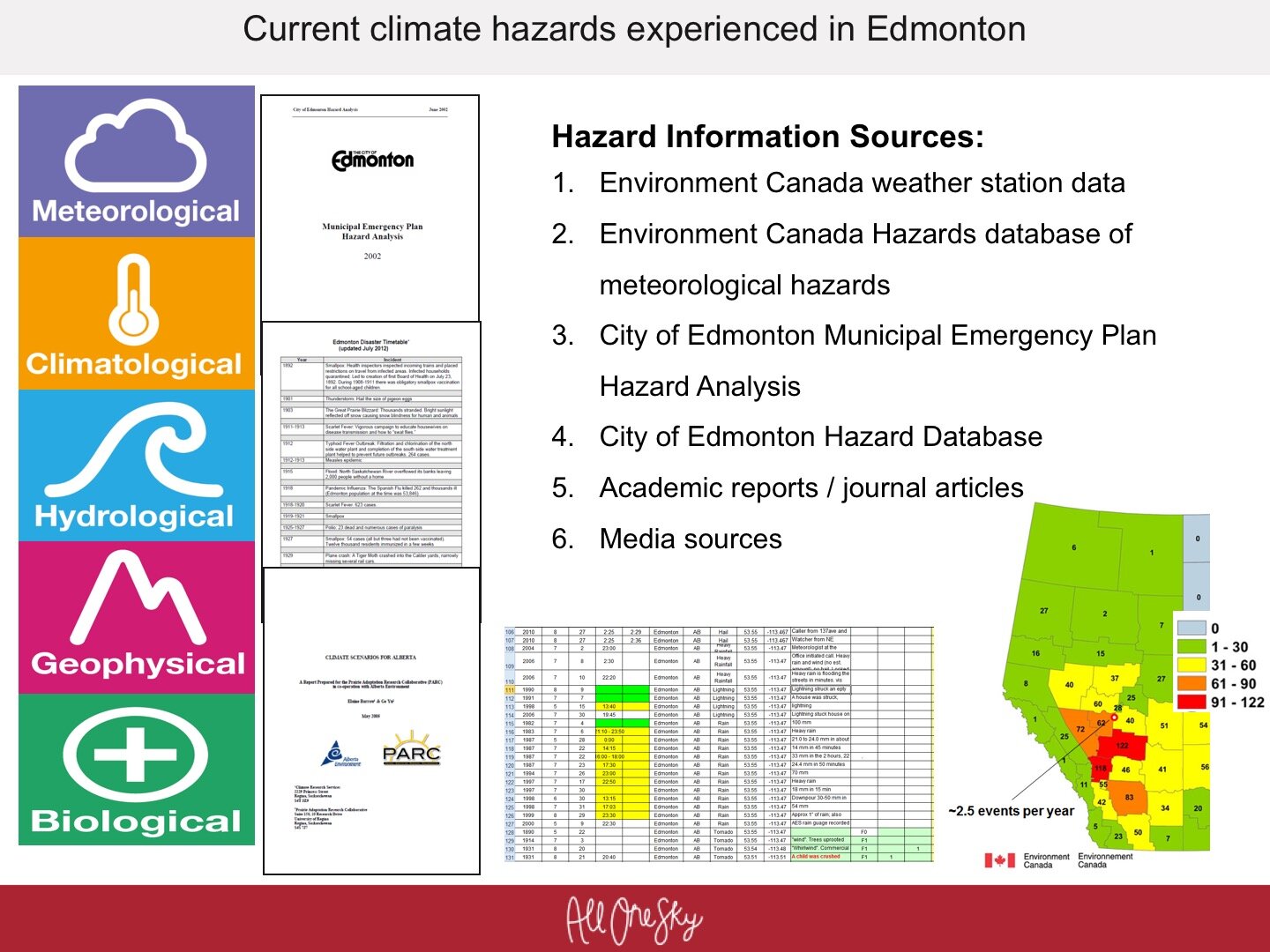Our Work >> Climate Adaptation & Resilience >> Research and Assessment
Research and Assessment
Climate change is already causing significant impacts today and will do so increasingly in the future. These impacts affect our economy, health, the natural environment, as well as our assets and infrastructure. Our work focuses on research and analysis to help decision-makers and practitioners understand and manage climate adaptation and resilience issues.
Triple Bottom Line Assessment Framework
Triple bottom line (TBL) approaches are decision-support tools that look broadly at all important impacts of different uses of public funds, including how impacts are distributed. TBL approaches provide a comprehensive assessment of the economic, environmental and social dimensions of different choices, which makes for more efficient and fairer decisions. We helped the City of Edmonton develop an approach to assess the TBL performance of capital investment projects. It is a business philosophy for assessing projects, programs and policies in terms of their potential environmental and social outcomes, alongside traditional financial and economic considerations.


Climate Risk Indicator System
Increasingly, climate change researchers and practitioners are developing composite indices to provide multidimensional, synthetic measures of climate change exposure, vulnerability, risk and resilience. Such indices are designed to capture complex human and environment systems at multiple spatial scales, and to support comparative analysis of people, assets and services within geographic areas and socioeconomic sectors. Composite indices can provide relative measures (scores or ratings) that allow the ranking of areas from lowest to highest level of climate vulnerability, risk or resilience. We worked with the City of Edmonton to develop a scientifically robust, evidence-based measurement system—a Climate Risk Index—to help the City:
Assess and track exposure, vulnerability, risk, and resilience to climate change and variability across time at city and sub-city scales.
Compare units of analysis (e.g., neighbourhoods across the city and assets and services within a neighbourhood) across space in particular geographic areas.
Guide policy decisions, set priorities, target resources, and manage progress toward climate change resilience and adaptation goals.
Climate Change Vulnerability and Risk Assessment for City of Edmonton
We live in an era of scarce public resources and competing demands for those resources. To ensure limited funds are used wisely, they should target the most consequential risks and most beneficial opportunities. We worked with the City of Edmonton, in partnership with Associated Engineering, to complete a comprehensive climate change vulnerability and risk assessment, quantifying climate risks facing 21 sectors across the city. The project involved conducting dozens of surveys, interviews and workshops with city staff and external stakeholders to prioritize climate-related risks and opportunities and facilitate efficient action planning.
Edmonton Energy System Resilience
In support of Edmonton’s Energy Transition Strategy, we completed an assessment of possible disruptions to Edmonton’s energy systems from climate-related disturbances and shocks. The assessment was focused on Edmonton’s 1) natural gas system, including transmission lines, storage, gate stations, distribution and end use, 2) electricity system including power facilities, step-up transformers, transmission wires, step-down transformers, distribution lines and end use. The project result was prioritized list of potential climate-related risks and opportunities facing Edmonton’s energy system, rated according to the significance of their expected consequences; and identification of potential actions to best manage the most significant risks and opportunities.
Edmonton Climate Hazard Assessment
In 2016, we supported Edmonton to develop a baseline profile of current climate hazards facing the city. The assessment contributed to the city’s climate resilience and adaptation efforts, in compliance with guidelines from the Global Covenant of Mayors for Climate and Energy.

